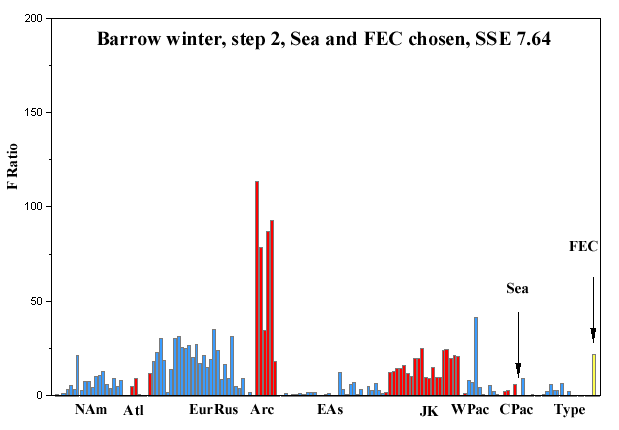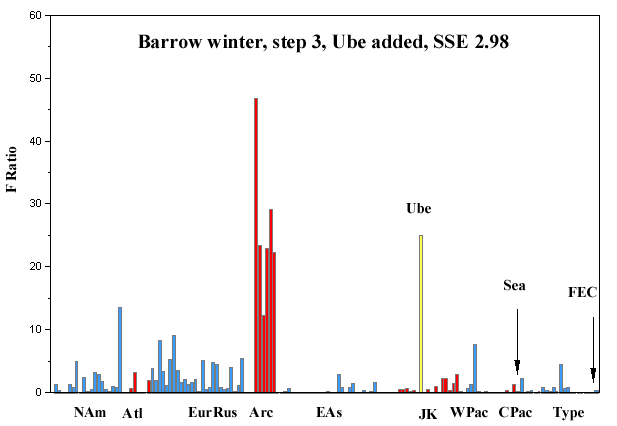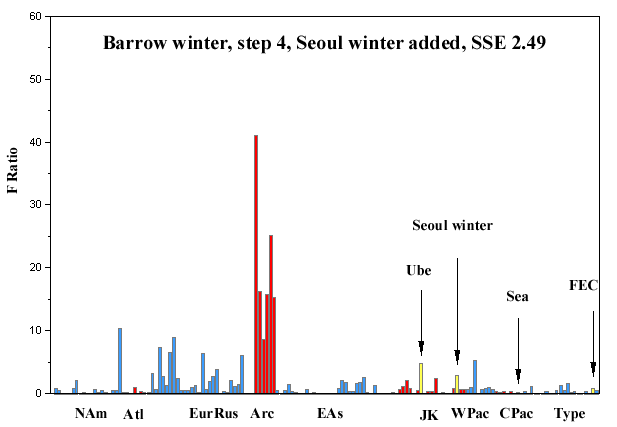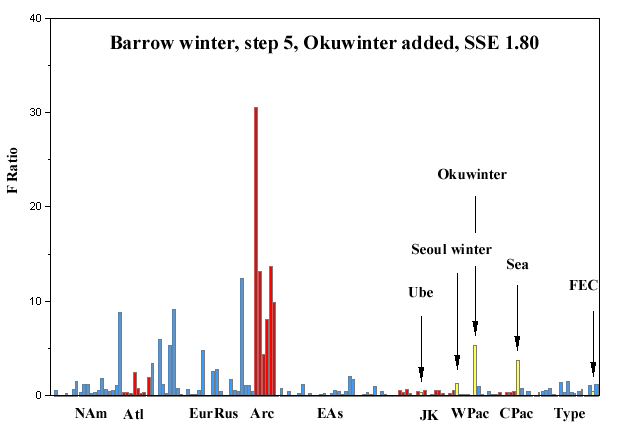
Japan/Korea solution for Barrow winter
The Japan/Korea solution for Barrow winter is shown below in red italic. It also fails handily, and confirms that Japan and Korea are not major sources of Arctic haze.
| Barrow, Alaska, winter | |||||
|
22 elements |
19 elements |
||||
|
Arctic solution |
European solution |
Arctic solution |
North American solution |
Japan/Korea solution |
|
| Step 0 | Nothing chosen | Nothing chosen | |||
| Step 2 | Sea and best crust (FEC) chosen, fit 8.59 | Sea and best crust (FEC) chosen, fit 7.64 | |||
| Step 3 | Norway added, fit 2.42 | Laptev added, fit 0.94 | Norway added, fit 1.18 | Akron added, fit 3.26 | Ube added, fit 2.98 |
| Step 4 | North Sea added, fit 0.71 | Bear Island added, fit 0.75 | Sudbury added, fit 2.69 | Seoul added, fit 2.49 | |
| Step 5 | TransEur added, fit 0.69 | Ny-Ålesund added, fit 0.66 | West Point Added, fit 2.34 | Oku winter added, fit 1.80 | |
| Step 6 | DCref added, fit 1.92 | ||||
We begin by repeating the figure for step 2 so as to show the justification for pursuing a Japan/Korea solution. Note the considerable number of Japan/Korea sites with modest F-ratios and none with high F-ratios. Thus we do not expect Japan/Korea to be a major source of Arctic haze.

Step 3 adds Ube, the JK site with the highest F-ratio. The fit improves to a poor 2.98.

Step 4 adds the best remaining JK site, Seoul winter. the fit improves marginally, to 2.49.

Step 5 moves outside the formal JK area and adds Okushiri winter. This improves the fit, but still to an unacceptable 1.80.

This ends the JK thread for Barrow winter, with the fit being unacceptable. Note the high F-ratios remaining for Arctic and European sites, the best thread.